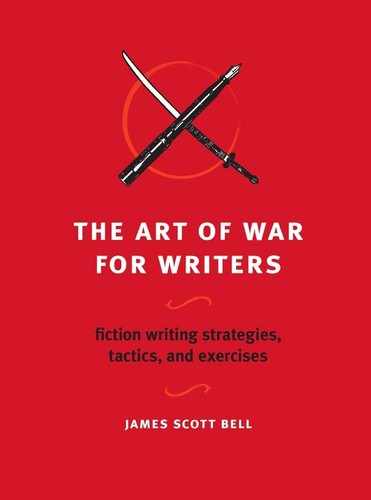
186
57
You are a business, and your
books are the product.
If you want to make it in the writing game, you must see
yourself as others (namely, publishers) need to see you.
They need to see you as valuable. That’s the founda-
tion of any enterprise where money changes hands.
You will be published, and compensated, to the de-
gree a publisher sees you bringing value to their table.
Pretty simple calculation.
But most writers don’t like to think in these terms,
especially if they are disposed to consider anything they
write as sacred fi re from the divine muse.
And we all know that from the writer’s perspective,
calling what we do a “business” is a little like calling the
racetrack an “investment.”
As thriller writer Joe Moore puts it, “How many nor-
mal people do you know who would work eighty to one
hundred hours a week, seven days a week, with no benefi ts
for two paychecks a year, and not know the amount of the
checks until the publisher decides to send a statement?”
True that.
But to increase your odds of success you need to develop a
little bit of the dispassion of the business executive.
Z4273i_184-220.indd 186Z4273i_184-220.indd 186 9/24/09 11:21:23 AM9/24/09 11:21:23 AM

187
First up, you need to do some strategic planning and
goal setting.
I know this makes many of you shudder. Relax. The
concepts are not that diffi cult, and they will help you in
your goal to get published. Here we go.
strategic planning for writers
Start by thinking of yourself as a small business enter-
prise with you as your own board of directors. Now, sit
down to plan and gaze into the future. You have only a
fi nite time on this earth, so this exercise is to help you
maximize your productivity and increase your quality.
That’s what business is really all about.
Step 1: Cast Your Vision
Most successful businesses begin with some type of vi-
sion statement. This is the long-term, all-encompassing
“dream” statement, describing what you want your career
to look like.
Give yourself at least a day to begin drafting your
vision. Go somewhere where you can be alone and just
think about what you want to accomplish as a writer.
Begin at the end. Pretend you are looking back at
your career ten years from now. What would you have
it look like? What are some of the details? Don’t worry
about being “realistic” (whatever that means). Dream big
and dream in detail.
Z4273i_184-220.indd 187Z4273i_184-220.indd 187 9/24/09 11:21:23 AM9/24/09 11:21:23 AM

188
Render the dream in a one-paragraph vision statement.
Write this paragraph as if it has been accomplished.
Not:
I hope to be a multi-published author of
gripping mysteries …
This way:
I am a multi-published author of gripping
mysteries …
Include in your vision statement what you offer the
market that distinguishes your writing from everyone
else. Part of this includes your own artistic vision, what
you want your writing to say.
My mysteries not only have a style that moves
to the rhythm of my city, in great sensory de-
tail, but also comment on the resiliency of the
human spirit.
Show your vision statement to someone you trust,
and who knows you well. Get feedback. Rewrite it until
it moves you.
You should, of course, revisit your vision statement
periodically. Once a year is good. Go over it again and
see if you need to make any changes.
Z4273i_184-220.indd 188Z4273i_184-220.indd 188 9/24/09 11:21:24 AM9/24/09 11:21:24 AM

189
Step 2: Count the Cost
The market is set up to reward excellence. Although it is
imperfect in this regard, you must become excellent to
have a shot. You must constantly strive to be better.
That means never “resting on your laurels.”
It means a program of constant improvement. (See
the section on “The career novelist will develop a writ-
ing improvement program, beginning with a notebook.”
on page 39.)
It means you have to count the cost. There are things
you are going to have to do, and not do, in order to be a
published writer. You will have to give up time in other
pursuits. It’s a good idea to talk this all over with your
family and friends.
Do listen to them. But do not let them label you as
crazy. Do not let them kill your dream. Make them part-
ners instead.
Work with all your intelligence and love. Work
freely and rollickingly as though you were
talking to a friend who loves you. Mentally (at
least three or four times a day) thumb your nose
at all know-it-alls, jeerers, critics, doubters.
—Brenda Ueland, If You Want to Write
Z4273i_184-220.indd 189Z4273i_184-220.indd 189 9/24/09 11:21:24 AM9/24/09 11:21:24 AM

critical success factors
CRAFT COOPERATION
BEST WRITER
POSSIBLE
BEST CLIENT
POSSIBLE
THE BOOK MARKETING
190
Step 3: Identify Your Critical Success Factors
Every enterprise has certain key factors that must be ex-
cellent in order for it to succeed. There are also factors
for every person who works in a business. Writers have
them, too. The critical factors are found within the fol-
lowing categories:
Start with the book. Your novel. You have nothing
if you have no book.
There are two directions you have to go with the
book. The fi rst is to be the best writer you can be, which
is a matter of working at your craft.
The second direction is bringing your book to the
market, partnering with your publisher. That means you
Z4273i_184-220.indd 190Z4273i_184-220.indd 190 9/24/09 11:21:24 AM9/24/09 11:21:24 AM
..................Content has been hidden....................
You can't read the all page of ebook, please click here login for view all page.
